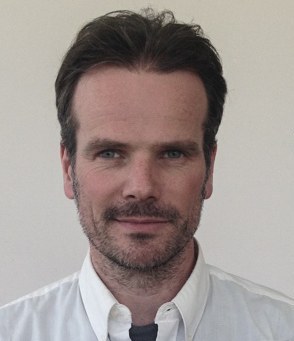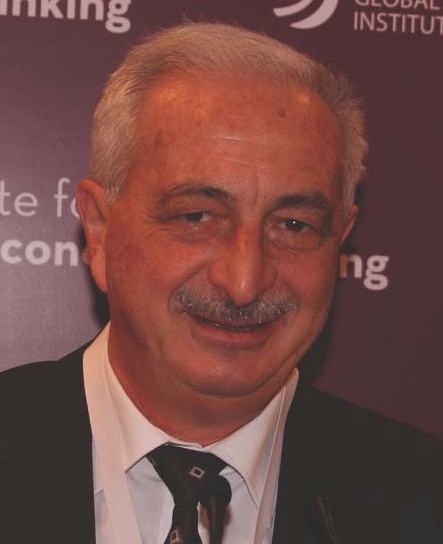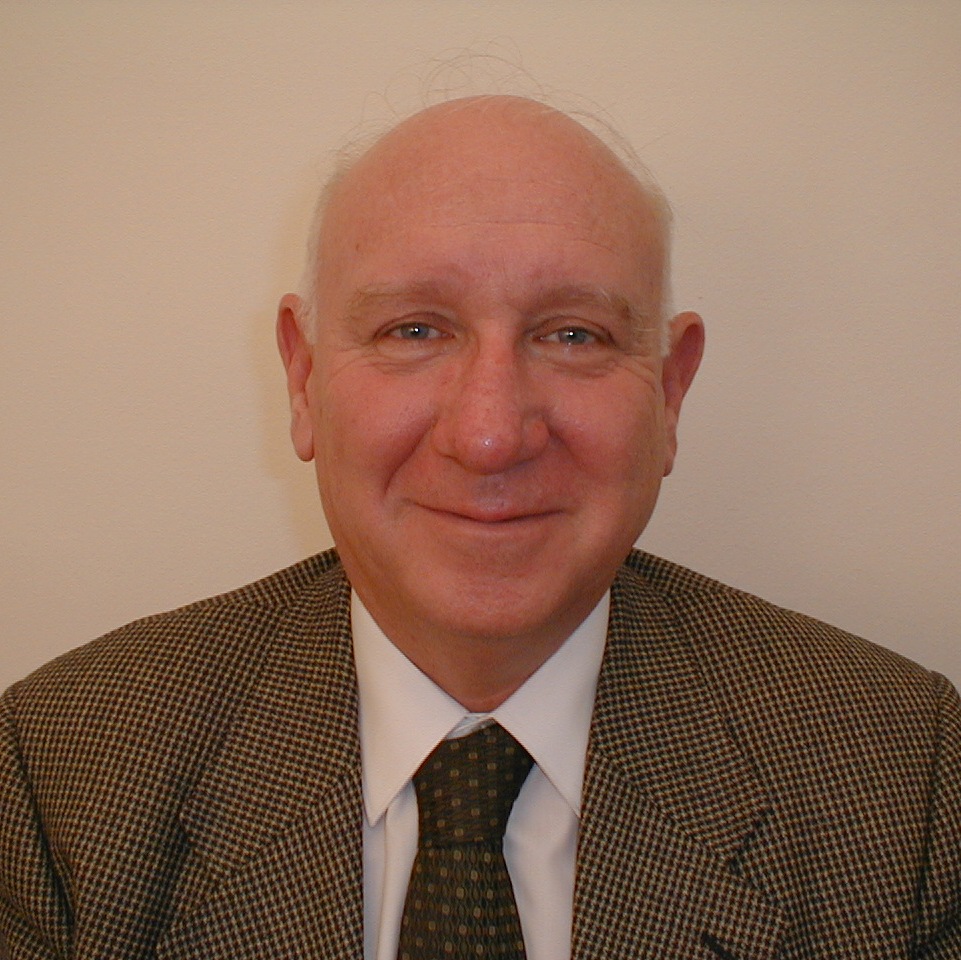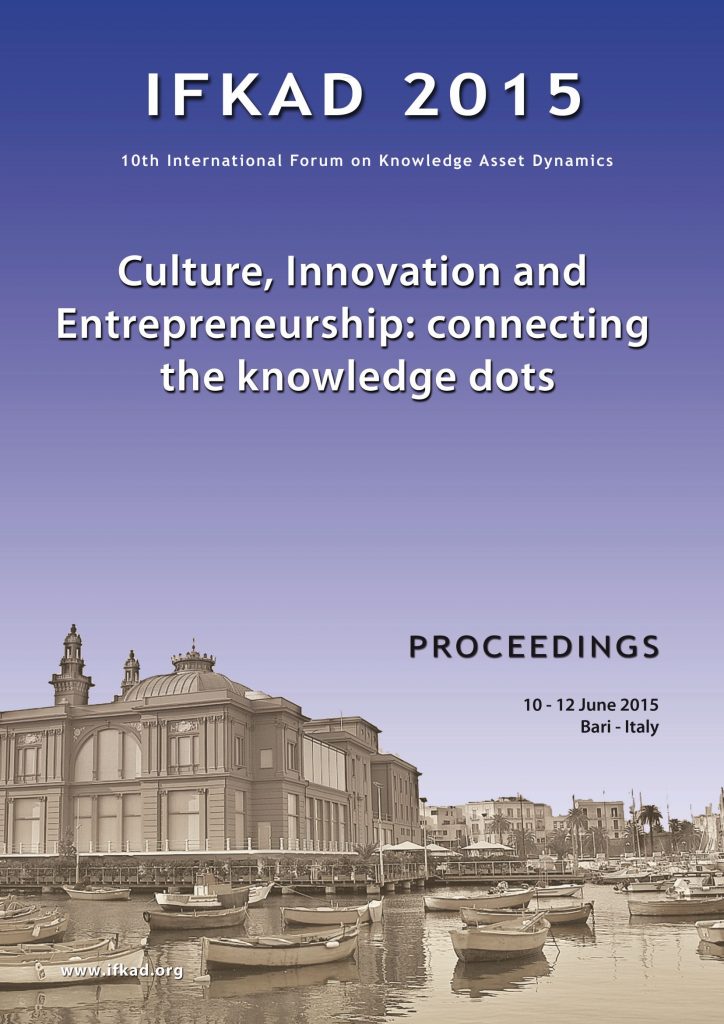Culture, Innovation and Entrepreneurship: Challenges in the Creative Industries
Organized by:
Diane-Gabrielle Tremblay | Teluq-University of Québec, Canada
Amina Yagoubi | Teluq-University of Québec, Canada
Knowledge Leakage in Organizations
Organized by:
Susanne Durst | University of Skövde, Sweden
Lena Aggestam | University of Skövde, Sweden
Eric Tsui | The Hong Kong Polytechnic University, Hong Kong
Project and Knowledge Management, a shared approach, to improve the enterprise innovation
Organized by:
Antonio Bassi | University of Applied Sciences and Arts of Southern Switzerland
Culture, Innovation and Entrepreneurship in tertiary higher education: connecting the knowledge dots
Organized by:
Maria de Lourdes Machado-Taylor | Centre for Higher Education Policy Studies, Portugal
Dennis Gregory | Old Dominion University, USA
Culture, Innovation and Entrepreneurship in a gendered perspective
Organized by:
Paola Paoloni | Niccolò Cusano University, Italy
Paola Demartini | Roma Tre University, Italy
Francesca Maria Cesaroni | Urbino University “Carlo Bo”, Italy
Innovation networks, clusters and ecosystems: managing the dynamics of intangible assets in open innovation contexts
Organized by:
Vincenzo Corvello | University of Calabria, Italy
Michele Grimaldi | University of Cassino and the Southern Lazio, Italy
Managing Knowledge for Innovation: the role of Culture and Cultural Diversities
Organized by:
Angelo Bonfanti | University of Verona, Italy
Rossella Canestrino | Parthenope University of Naples, Italy
Pierpaolo Magliocca | University of Foggia, Italy
Lorenzo Neri | University of Greenwich, United Kingdom
Antonella Russo | Parthenope University of Naples, Italy
Why bother about culture in SMEs and micro firms? Innovation, culture and entrepreneurial dynamics in regional development
Organized by:
Manuel Fernández-Esquinas | Institute for Advanced Social Studies, Spain
Madelon van Oostrom | Tenerife Science and Technology Park, Spain
Hugo Pinto | University of Coimbra, Portugal
Collective Intelligence Systems for Technology Entrepreneurship
Organized by:
Gianluca Elia | University of Salento, Italy
Fabio Fumarola | University of Bari, Italy
Antonio Messeni Petruzzelli | Polytechnic University of Bari, Italy
Karim Moustaghfir | Al Akhawayn University in Ifrane, Morocco
Creativity and innovative mindset for entrepreneurship: enabling factors, processes and environment
Organized by:
Giustina Secundo | University of Salento, Italy
Flemming K. Fink | Aarhus University, Denmark
Lars Frederiksen | Aarhus University, Denmark
Helle Neergaard | Aarhus University, Denmark
Pasquale Del Vecchio | University of Salento, Italy
Sustainability as a driver for different forms of innovation
Organized by:
Rosa Maria Dangelico | Sapienza University of Rome, Italy
Fabio Nonino | Sapienza University of Rome, Italy
Crossing the language and cultural barriers: Innovative approaches to blending academic and entrepreneurial knowledge
Organized by:
Ivan Obradović | University of Belgrade, Serbia
Ranka Stanković | University of Belgrade, Serbia
Giovanni Schiuma | University of the Arts London, UK
Roberto Linzaloen | University of Basilicata, Italy
Danijela Milošević | University of Kragujevac, Serbia
Innovation and cultural entrepreneurship – the core of a knowledge society
Organized by:
Ramona-Diana Leon | National University of Political Studies and Public Administration, Romania
Florina Pinzaru | National University of Political Studies and Public Administration, Romania
Alexandra Zbuchea | National University of Political Studies and Public Administration, Romania
Innovation Ecosystems: concepts, models, and knowledge practices
Organized by:
Francesco Bifulco | University of Naples Federico II, Italy
Tiziana Russo Spena | University of Naples Federico II, Italy
Marco Tregua | University of Naples Federico II, Italy
Innovations in corporate disclosure
Organized by:
John Dumay | Macquarie University, Australia
Rosa Lombardi | Link Campus University, Italy
Sustainability entrepreneurship – the role of culture in searching for innovation opportunities
Organized by:
Alena Klapalová | Masaryk University, Czech Republic
Radoslav Škapa | Masaryk University, Czech Republic
Viktor Kulhavý | Masaryk University, Czech Republic
IC valuation, corporate governance, knowledge, and intangible assets
Organized by:
Raffaele Trequattrini | University of Cassino and Southern Lazio, Italy
Fabrizio Rossi | University of Cassino and Southern Lazio, Italy
Domenico Celenza | University of Cassino and Southern Lazio, Italy
Exploring the Drivers of Complexity in Economic and Financial Networks: Models and Empirics
Organized by:
Ilaria Giannoccaro | Polytechnic University of Bari, Italy
Giorgio Fagiolo | Scuola Superiore Sant’Anna, Italy
Business Models Innovation in Creative and Cultural Organizations
Organized by:
Antonio Lerro | University of Basilicata, Italy
Giovanni Schiuma | University of Arts London, UK
Collective coordination through space: environments of collaboration and creativity
Organized by:
Jörg Rainer Noennig | Dresden Univeristy of Technology, Germany
Anja Jannack | Dresden Univeristy of Technology, Germany






